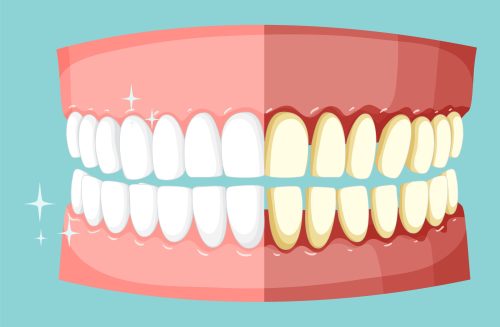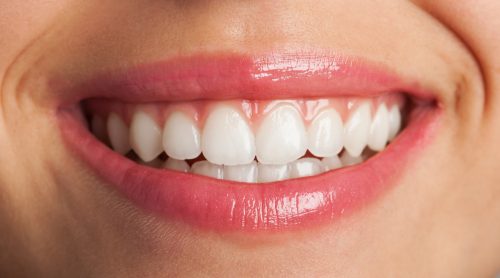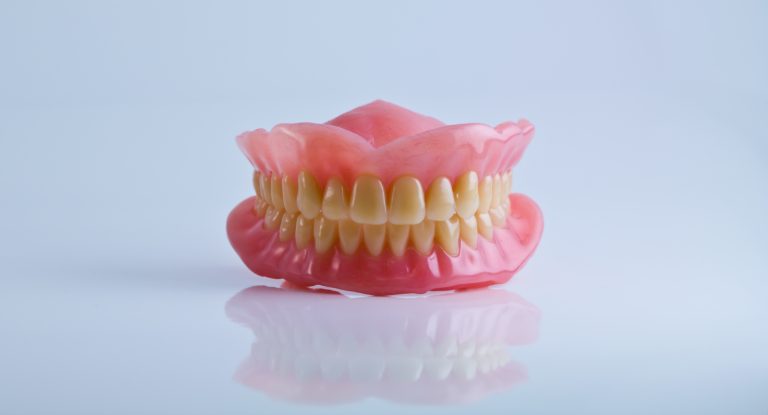A bright, white smile is often seen as a sign of good health and confidence. However, many people struggle with yellow teeth, which can affect their self-esteem and overall appearance. Understanding what causes yellow teeth is the first step toward preventing and addressing this common issue. Explore the various factors that contribute to tooth discoloration, from dietary habits and lifestyle choices to genetic and medical influences. By identifying the root causes, you can take better care of your teeth and maintain a healthier, whiter smile. If you are looking for teeth whitening in Spokane, you can always contact Avenue Dental for the best results.
What Causes Yellow Teeth?
1. Dietary Habits

What causes yellow teeth? What you eat and drink plays a significant role in the color of your teeth. Certain foods and beverages are notorious for staining teeth over time. Coffee, tea, and red wine are among the most common culprits. These drinks contain chromogens, which are intense color pigments that attach to your enamel, leading to discoloration. Similarly, foods like berries and sauces can also cause stains if consumed frequently.
Sugary and acidic foods contribute to yellow teeth as well. Sugar promotes the growth of bacteria that produce acids, which can erode the enamel. Once the enamel is worn down, the yellowish dentin underneath becomes more visible, giving your teeth a dull appearance. It’s not just about avoiding these foods but also ensuring you maintain a balanced diet that supports your overall oral health.
2. Smoking and Tobacco Use
Smoking is another major factor in tooth discoloration. The nicotine and tar in tobacco can stain your teeth, turning them yellow or even brown over time. The staining process begins almost immediately after you start smoking. As you continue, the stains penetrate deeper into the enamel, making them harder to remove with regular brushing.
In addition to causing yellow teeth, smoking has numerous other negative effects on your oral health. It increases the risk of gum disease, tooth loss, and even oral cancer. If you’re looking to improve the appearance of your teeth, quitting smoking is one of the most effective steps you can take.
3. Poor Oral Hygiene
What causes yellow teeth? Neglecting your oral hygiene can lead to plaque buildup, which not only causes cavities but also contributes to yellow teeth. When plaque isn’t removed through regular brushing and flossing, it hardens into tartar, which is a yellow or brown substance that sticks to your teeth and can only be removed by a dentist.
Daily brushing, flossing, and using mouthwash are essential practices to prevent plaque buildup. Without these habits, your teeth are more likely to become discolored over time, especially if combined with other risk factors like dietary habits and smoking.
4. Aging
As you age, your teeth naturally lose their brightness. The outer layer of your teeth, called enamel, gradually wears down, revealing more of the yellow dentin underneath. This is a natural process and can’t be completely avoided, but it can be managed with proper care.
Aging also reduces the amount of enamel that covers your teeth, making the underlying dentin more visible. While you can’t stop the aging process, maintaining good oral hygiene and visiting your dentist regularly can help slow down the yellowing of your teeth.
What Causes Yellow Teeth? Medical and Genetic Factors
1. Medications
Certain medications can lead to tooth discoloration, particularly if taken during childhood when teeth are still developing. Antibiotics like tetracycline and doxycycline are known to cause teeth to turn yellow or even gray if taken by children under the age of eight. Other medications, such as antihistamines, blood pressure drugs, and chemotherapy treatments, can also cause teeth to become discolored in both children and adults.
If you’re taking any medications, it’s essential to be aware of the potential side effects on your teeth. In some cases, the benefits of the medication outweigh the risk of tooth discoloration, but discussing options with your doctor or dentist may help minimize any adverse effects on your smile.
2. Genetics
Your genetic makeup can also influence the color of your teeth. Just as you inherit your eye color and hair type, you can also inherit the thickness and natural color of your enamel. Some people naturally have thicker enamel, which appears whiter, while others may have thinner enamel, which can make the yellow dentin more noticeable.
In some families, a predisposition to tooth discoloration may be more common due to inherited enamel traits. While you can’t change your genetics, being mindful of your oral hygiene and lifestyle choices can help you manage and maintain the appearance of your teeth.
3. Health Conditions
What causes yellow teeth? Certain health conditions can also cause yellow teeth. For example, diseases that affect the liver or respiratory system can impact the color of your teeth. Conditions that reduce saliva production, such as Sjögren’s syndrome, can lead to a dry mouth, which increases the risk of plaque buildup and tooth discoloration. Additionally, some developmental conditions can affect the formation of enamel, leading to a higher likelihood of yellow teeth.
Environmental and Lifestyle Influences
1. Fluoride Exposure
Fluoride is often added to public water supplies and dental products because it helps prevent tooth decay. However, excessive fluoride exposure, particularly during childhood, can lead to a condition called dental fluorosis. This condition causes white spots or streaks on the teeth, but in more severe cases, it can result in brown or yellow stains. While fluoride is beneficial in the right amounts, overexposure during the early years when teeth are developing can cause permanent discoloration.
If you’re concerned about fluoride exposure, it’s important to monitor the levels in your drinking water and the amount of fluoride in your toothpaste and mouthwash. Consulting with a dentist can help you determine the appropriate level of fluoride for your oral health without risking discoloration.
2. Trauma or Injury
Physical trauma to the teeth, such as a fall or a sports injury, can lead to discoloration. When a tooth is injured, the blood vessels inside can burst, causing internal bleeding that may lead to a yellow, gray, or even brown appearance. In some cases, the trauma can also cause the enamel to crack, making it easier for stains to penetrate and discolor the tooth.
If you experience a dental injury, seeking prompt treatment is crucial. Depending on the severity of the trauma, your dentist may recommend a range of treatments, from simple monitoring to more intensive procedures like root canals or crowns to restore the appearance and health of the affected tooth.
3. Dental Products and Treatments
While most dental products are designed to improve oral health, some can contribute to tooth discoloration if not used correctly. Over-the-counter whitening products, for example, can sometimes damage the enamel if used excessively, leading to an increase in yellowing over time. Similarly, some mouthwashes contain ingredients that, while effective against bacteria, can stain teeth if used too frequently.
Certain dental treatments can also cause temporary discoloration. For instance, metal fillings can cause the surrounding tooth to take on a grayish tint. Additionally, some restorative materials used in crowns and bridges may not match the natural color of your teeth, leading to noticeable differences in appearance.
To minimize the risk of discoloration from dental products and treatments, it’s important to follow the instructions provided by your dentist and use products that are suited to your specific needs. Regular dental checkups can also help ensure that any potential issues are identified and addressed early.
How to Prevent and Treat Yellow Teeth
1. Improved Oral Hygiene Practices
One of the most effective ways to prevent yellow teeth is by maintaining good oral hygiene. Brushing your teeth at least twice a day with fluoride toothpaste helps remove food particles and plaque that can cause discoloration. Flossing daily is equally important, as it removes debris and plaque from between the teeth where a toothbrush might not reach. Additionally, using an antibacterial mouthwash can help reduce the bacteria that contribute to plaque buildup.
Regular dental cleanings are also essential. During these visits, your dentist or dental hygienist will remove tartar, which is hardened plaque that can’t be removed by brushing alone. These cleanings not only help prevent cavities but also keep your teeth looking brighter by removing surface stains.
2. Dietary Changes
What you eat and drink has a direct impact on the color of your teeth. To prevent yellowing, it’s a good idea to limit your intake of foods and beverages that are known to stain teeth, such as coffee, tea, red wine, and dark-colored berries. If you do consume these items, rinsing your mouth with water afterward can help minimize staining.
In addition to avoiding certain foods, incorporating others into your diet can promote oral health. Foods like apples, celery, and carrots can help clean your teeth naturally by increasing saliva production, which washes away food particles and bacteria. Dairy products, rich in calcium, can strengthen enamel and help keep your teeth white.
3. Professional Treatments
If your teeth have already become yellow, professional treatments can help restore their natural whiteness. In-office whitening procedures are one of the most effective methods for achieving a brighter smile. These treatments use stronger whitening agents than over-the-counter products, and the results are usually visible after just one session. Your dentist can also provide take-home whitening kits that are custom-made for your teeth, allowing you to whiten your teeth gradually at home.
For more severe discoloration, other cosmetic dental treatments like veneers or bonding may be recommended. These options cover the front surface of your teeth with a custom-made shell, giving you a whiter, more even smile.
4. Lifestyle Modifications
Making changes to your lifestyle can also help prevent yellow teeth. If you smoke or use tobacco products, quitting can prevent further staining and improve your overall oral health. Reducing your consumption of foods and drinks that stain teeth can also make a significant difference.
In addition, staying hydrated by drinking plenty of water throughout the day can help wash away food particles and bacteria that cause plaque and discoloration. Chewing sugar-free gum after meals can also increase saliva production, which helps keep your teeth clean and white.
See a dentist if there is:
- Persistent Discoloration: Consult a dentist if yellowing persists despite good oral hygiene.
- Discomfort or Sensitivity: Yellow teeth accompanied by discomfort or sensitivity may indicate enamel wear or other dental issues.
- Aesthetic Concerns: If yellow teeth affect your confidence, a dentist can offer cosmetic solutions like whitening or veneers.
Your Path to a Brighter Smile Begins at Avenue Dental Group

When it comes to enhancing your smile, trust Avenue Dental Group in Spokane, WA. Our award-winning team is dedicated to providing top-quality care using the latest technology and techniques. Whether you’re considering teeth whitening or other cosmetic dental treatments, our highly skilled professionals are here to ensure you achieve the results you desire.
With a commitment to personalized service and patient comfort, we take the time to understand your unique needs and deliver long-lasting, beautiful outcomes. Book an appointment with us at our Spokane Valley or North Spokane locations and experience why so many patients choose Avenue Dental Group for their cosmetic dental care.

